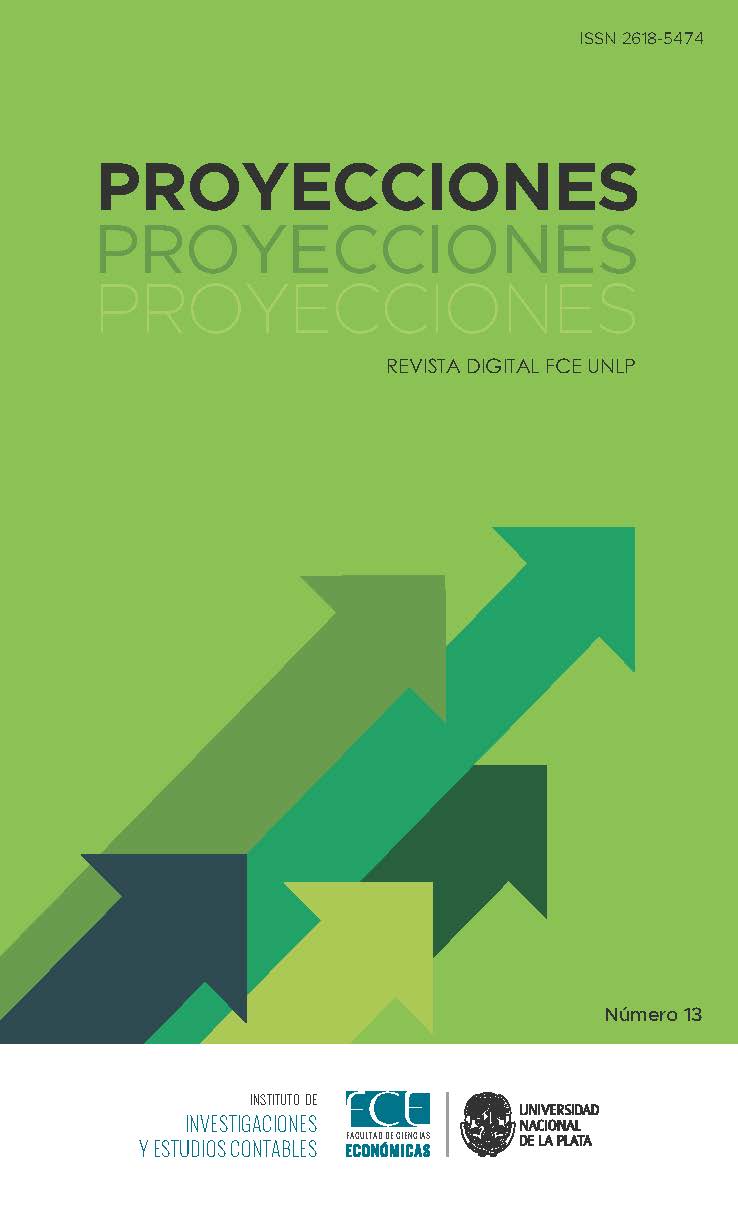The discussion on accounting theory: Reflexions on accounting discipline in the economic field and on the social economy
DOI:
https://doi.org/10.24215/26185474e005Keywords:
Real object, Useful end, Informative destination, Accounting statement, Social reportAbstract
The most recent research done on the scope of Accounting is aimed at giving it a broader scope, which seeks to project it to incumbencies of the Economy and Sociology.
This work tries to verify the feasibility of this attempt, especially in terms of the relationship that is intended to be attributed as an instrument to inspire future investment decisions and corrections of socially and environmentally reprehensible business practices.
As the incremental purpose of these proposals affects the structure of the system on which the Accounting is based, this writing seeks to compare the fundamentals of the discipline with the purpose of an accounting theory that would be comprehensive of these new paradigms, to argue about the perspectives that it finds, for its acceptance or rejection.
It is, however, practically demonstrated the possible incursion of the discipline in the macroeconomic field, confirmed from the consolidation of accounting statements that explain the microeconomic, when it propose to be auxiliary to the Economy, to inform about the past annual evolution.
Downloads
Metrics
References
Arreghini, H. (2015). Interpretación de la información contable hecha con la visión del economista. Revista D&G Profesional & Empresaria, Tomo XVI, nº 195, 1199-1215
Arreghini, H. (2016). El conflicto entre estado contable e informe social. Revista D&G Profesional & Empresaria, Tomo XVII, nº 198, 253-260.
Arreghini, H. (2017a). Contabilidad integradora de información económica nacional. Revista D&G Profesional & Empresaria, Tomo XVIII, nº 210, 267-284.
Arreghini, H. (2017b). Los procesos integrantes y la contabilidad. Revista D&G Profesional & Empresaria, Tomo XVIII, nº 213, 571-585.
Arreghini, H. (2017c). Contabilidad integradora de información económica nacional: Estados contables para demostrar el ingreso y producto de la nación. Revista D&G Profesional & Empresaria, Tomo XVIII, nº 216, 843-878.
Arreghini, H. (2018). Lo social y la contabilidad. Revista D&G Profesional & Empresaria, Tomo XIX, nº 224, 467-478.
Bunge, M. (1978). La ciencia, su método y su filosofía. Buenos Aires, Argentina: Ediciones Siglo Veinte.
Chaves, O., Fronti de García, L., Pahlen Acuña, R. y Viegas, J. (1996). Contabilidad, Presente y Futuro. Buenos Aires, Argentina: Macchi Grupo Editor S.A.
Fowler Newton, E. (1991). Cuestiones contables fundamentales. Buenos Aires, Argentina: Macchi Grupo Editor S.A.
Mattessich, R. (2002). Contabilidad y métodos analíticos. Buenos Aires, Argentina: La Ley S.A.
Mattews, R. (1974). Contabilidad para economistas. Madrid, España: Aguilar S.A.
Orgaz, R. (1950). Sociología. Córdoba, Argentina: Establecimientos Gráficos Assandri
Ortega y Gasset, J. (1961). El espectador. Madrid, España: Biblioteca Nueva
Pareto, V. (1945). Manual de economía política. Buenos Aires, Argentina: Editorial Atalaya
Powelson, J. (1958). Contabilidad económica. México: Fondo de Cultura Económica
Thomson, J. (1929). Introducción a la ciencia. Barcelona, España: Editorial Labor S.A.
Downloads
Additional Files
Published
How to Cite
Issue
Section
License
El material publicado en la revista se distribuye bajo una licencia de Creative Commons de Atribución-NoComercial-SinDerivadas 4.0 Internacional (CC BY-NC-ND 4.0). Esta licencia obliga a otros a dar crédito de manera adecuada, brindar un enlace a la licencia, e indicar si se han realizado cambios; no permite hacer uso comercial de la obra; y si se remezclara, transformara o creara otro material a partir de la obra, no podrá ser distribuida esa modificación.




























